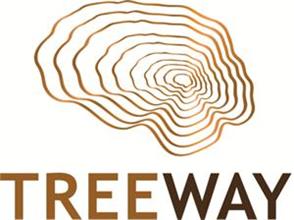 Recently, Treeway B.V. announced that the active component, edaravone, found in one of the company's lead therapeutic compounds, TW001, has received orphan drug status from regulatory agencies in both the US (FDA) and European Union (EMA). These special designations provide the company specific developmental protections and other opportunities for the compound. Orphan drug status designation is not the same as these regulatory agencies approving TW001 for the use in treating ALS.
Recently, Treeway B.V. announced that the active component, edaravone, found in one of the company's lead therapeutic compounds, TW001, has received orphan drug status from regulatory agencies in both the US (FDA) and European Union (EMA). These special designations provide the company specific developmental protections and other opportunities for the compound. Orphan drug status designation is not the same as these regulatory agencies approving TW001 for the use in treating ALS.
The active compound in TW001 in edaravone, which is used in some countries as a treatment following stroke. In Japan, the pharmaceutical company, Mitsubishi Tanabe, operated a Phase 3 clinical trial of the compound, under the code name MCI-186, in ALS patients over the last several years. Results from the study have not be published but are expected.
According to Treeway, they have reengineered edaravone so that it can be delivered in pill form (TW001) rather than via intravenous infusion (MCI-186) as was done in the original trial by Mitsubishi Tanabe. Treeway believes that constant exposure to edaravone in PALS will be required to determine its efficacy and that the oral formulation will enable such an experiment to be conducted best.
Treeway says they have patented their oral formulation of edaravone (TW001), and will conduct a phase 1 clinical trial to ensure the optimal exposure levels needed. At the time of this post, the status or results from the phase 1 safety and dose optimization trial are not known.
However, Treeway has announced they anticipate launching a phase 3 clinical trial in PALS by the end of 2015. With the results of the phase 1 study pending, it should be assumed they will be needed to inform the design and execution of such an additional clinical study of TW001. All clinical trials occurring globally are listed and updated regularly by staff at the ALS Therapy Development Institute, and as new information becomes available, we will add any TW001 clinical trials to the database when they are announced.
What is Edaravone?
In Treeway's filing with the European Medicines Agency, they describe the following rationale for how they expect TW001 to work: "Damage to nerve cells in ALS appears to have several causes, but there is evidence that it may involve damage to nerves caused by toxic molecules containing oxygen. In some patients, this is associated with a defect in the gene responsible for producing the enzyme called superoxide dismutase (SOD), which causes the enzyme to clump together inside nerve cells. This leads to inflammation and kills the affected nerve cells. Edaravone is expected to act as an antioxidant, a molecule that can prevent damage to nerve cells caused by oxygen-containing molecules, and also blocks the clumping together of SOD in the nerves and so reduces inflammation."
Bottom line
TW001 is not approved for the treatment of ALS at this time. To our best knowledge, TW001 is not currently available to PALS in clinical trials or otherwise. Limited information about edaravone efficacy in ALS, via the phase 3 clinical trial in Japan, or this reformulation of the compound, makes commenting on the formulations difficult at this point in time. Additionally, the planned phase 1 study should inform regarding any additional differences in dosing strategies between the oral IV formulations. The ALS Therapy Development Institute looks forward to seeing data from Mitsubishi Tanabe's clinical trial, Treeway's phase 1 study on dose optimization, and their trial design for the phase 3 program. We encourage both companies to continue to make public information about their clinical development programs for ALS as they move their proposed treatments through that process in the US, EU, and elsewhere.